Review: BNS Productions Present AKWAABA
A Juneteenth (Freedom) Celebration
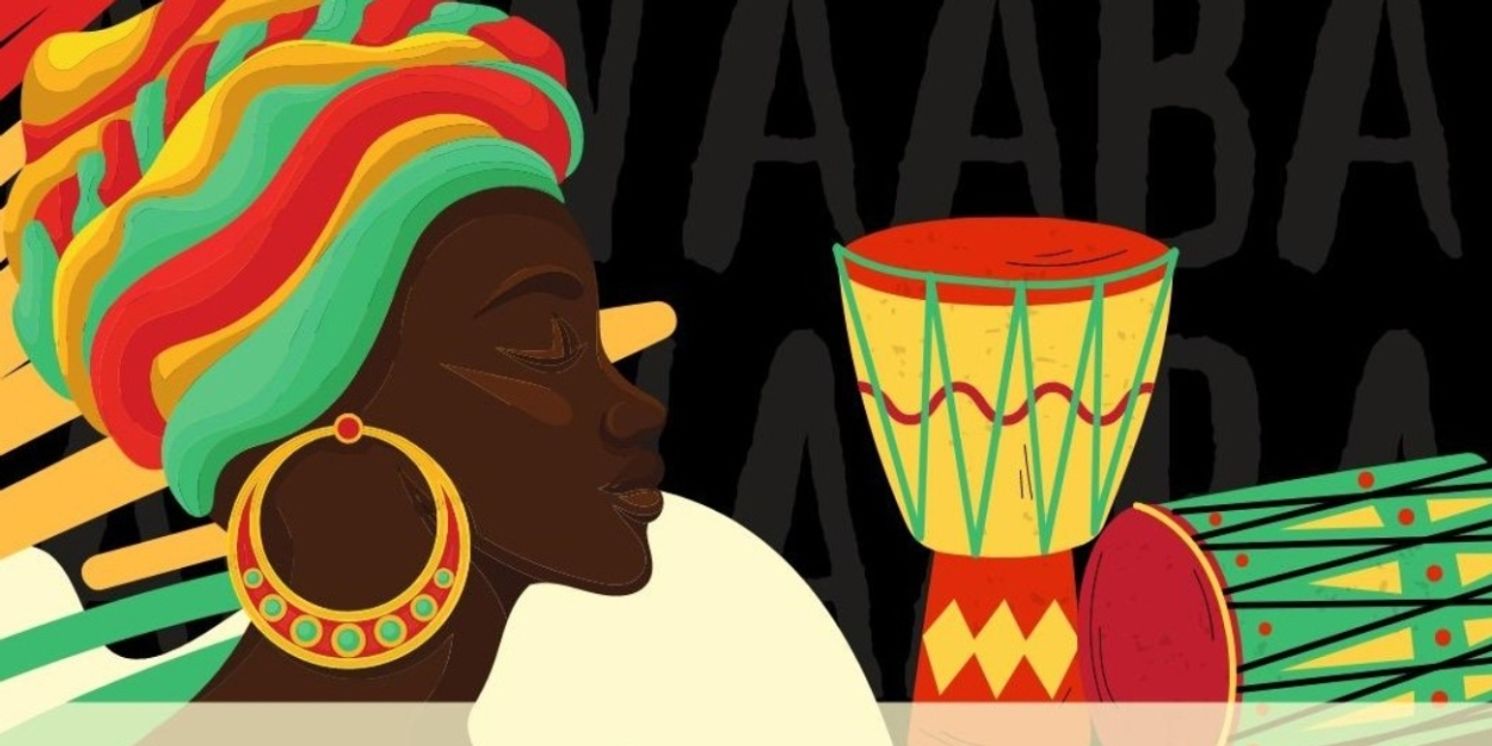
Akwaaba means “Welcome” in the Ghanian language. I’m sure I can serve as spokesman for the patrons who attended the performance of the original work, Akwaaba, written by Rory D. Sheriff, when I express that we all felt the “spirit of welcome” at Central Piedmont Community College’s Parr Center, on Juneteenth (June 19), the day that commemorates freedom for the enslaved Africans.
Akwaaba is “a new play that changes the narrative of the Trans-Atlantic Slave Trade and the very first Juneteenth. This amazing journey is filled with West African Dance and Negro spirituals.”, states Rory D. Sheriff. During the talkback, many patrons expressed that they were happy to see that the Africans, which were captured, enslaved, who symbolically entered the “Door (Point) Of No Return” and were brought to America on horrific slave ships, were visually shown returning back to their native land through the “Door (Point) of Return”.
Akwaaba also emphasized the historical reference of the stripping away of African traditions by the “massa” once the slaves were brought to America, even to the point of renaming them with derogatory names that were not indicative of their royal heritage, such as “Giddy Yup”.
The heartbeat of the production was the African drummers (Baba Ayinde, Sylvester Berkley, and Chris Thompson), who kept us in timing with the rhythm of the storytelling. Drumming has always played an important part in the African/African-American cultural because it was a very significant form of communication. Drumming also represented protected royalty.
The African dancers set the atmosphere, with featured dancers from The Chris Thompson Cultural Ensemble. Their body gestures told a story of its own whether through the jubilance of celebration or through the traumatic experience of captivity.
Akwaaba provides a powerful stage setting in the backdrop of the tree provided by set designer, James Duke. The set, simple yet relatable, adds just the touch needed to take the imagination back to Africa.
I would be remised not to mention the color wheel of costumes that lit up the stage from the dancers to the royal king and queen. In African, costumes were worn to mark the status of an individual, a special ritual, or passage of time as people moved from one state to another. Kudos go to Davita Galloway (and company) of Dupp & Swat for an array of colorful, fashionable costumes.
Akwaaba was perfectly cast especially with the lead characters, Toi Aquilla R. J. (Akuba), Jermaine A. Gamble (King Solomon/Boy Weedo), and Marcus A Looney (Kofi Mansa/Giddy Yup). They embodied their characters and showed the stark contrast between African royalty and enslaved Americans. The character, Akuba, showcased royalty even when she was captured…she never forgot her African roots and was instrumental in leading the others back to Africa.
Although the playwright, Rory D. Sheriff mentioned that Akwaaba is still in its developmental stage, it provided the foundation and substance to encompass the “plot” of the storyline. We look forward to seeing its growth and maturity. As always, I am proud to see African American productions that represent our cultural, that are written, directed, performed, and produced by African Americans.

With A Powerful Song
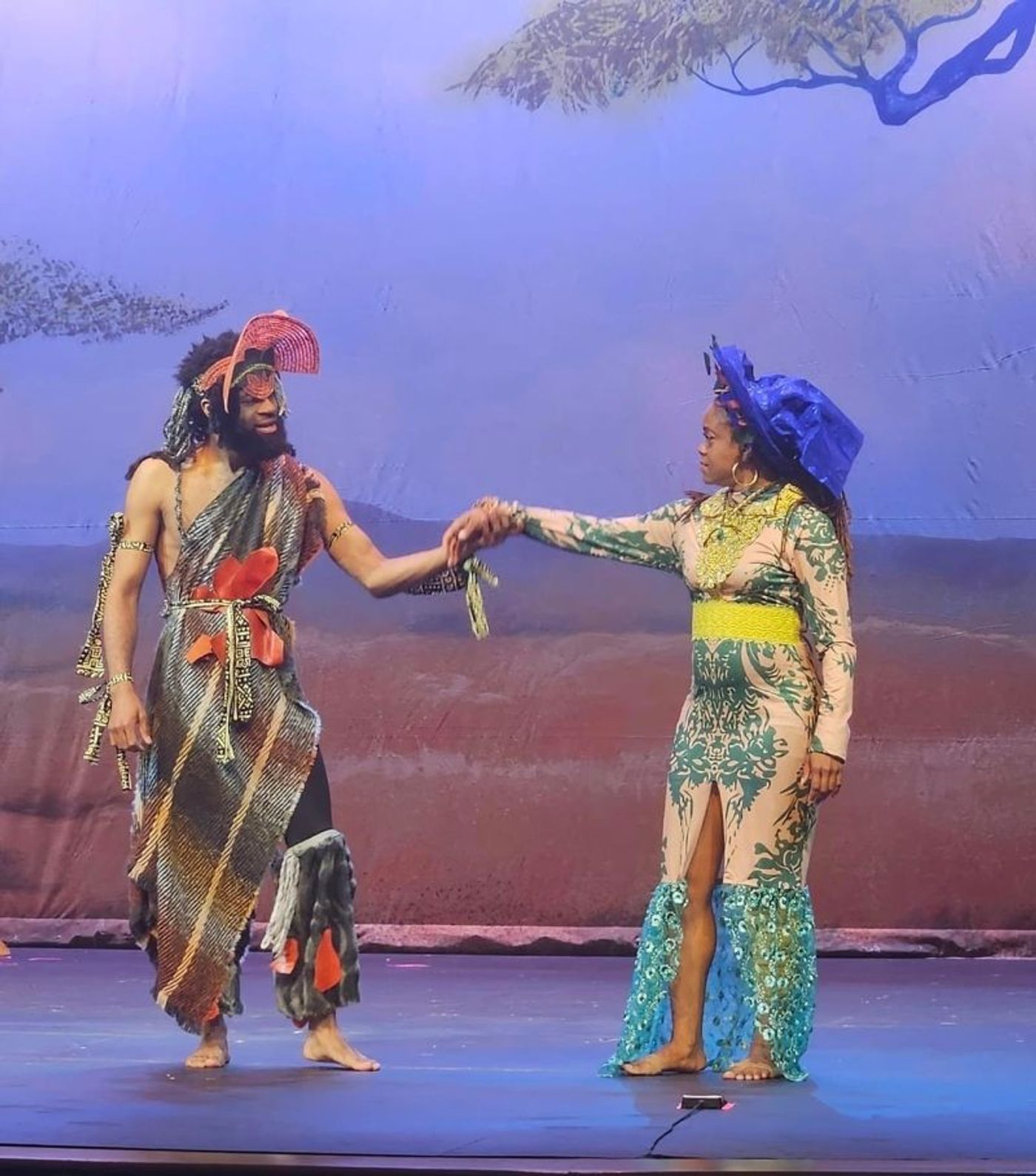
Toi Aquila R.J. (Akuba)
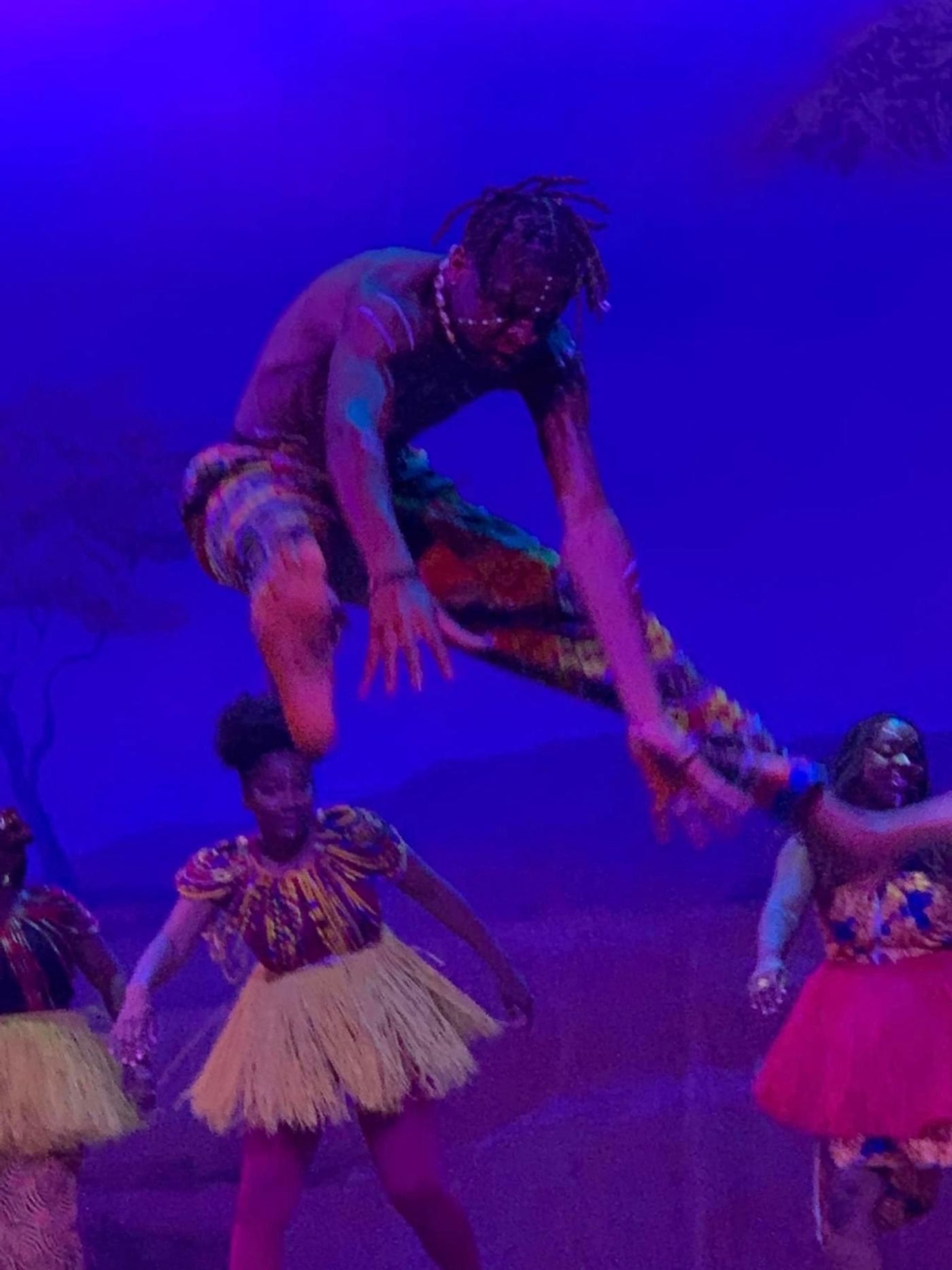
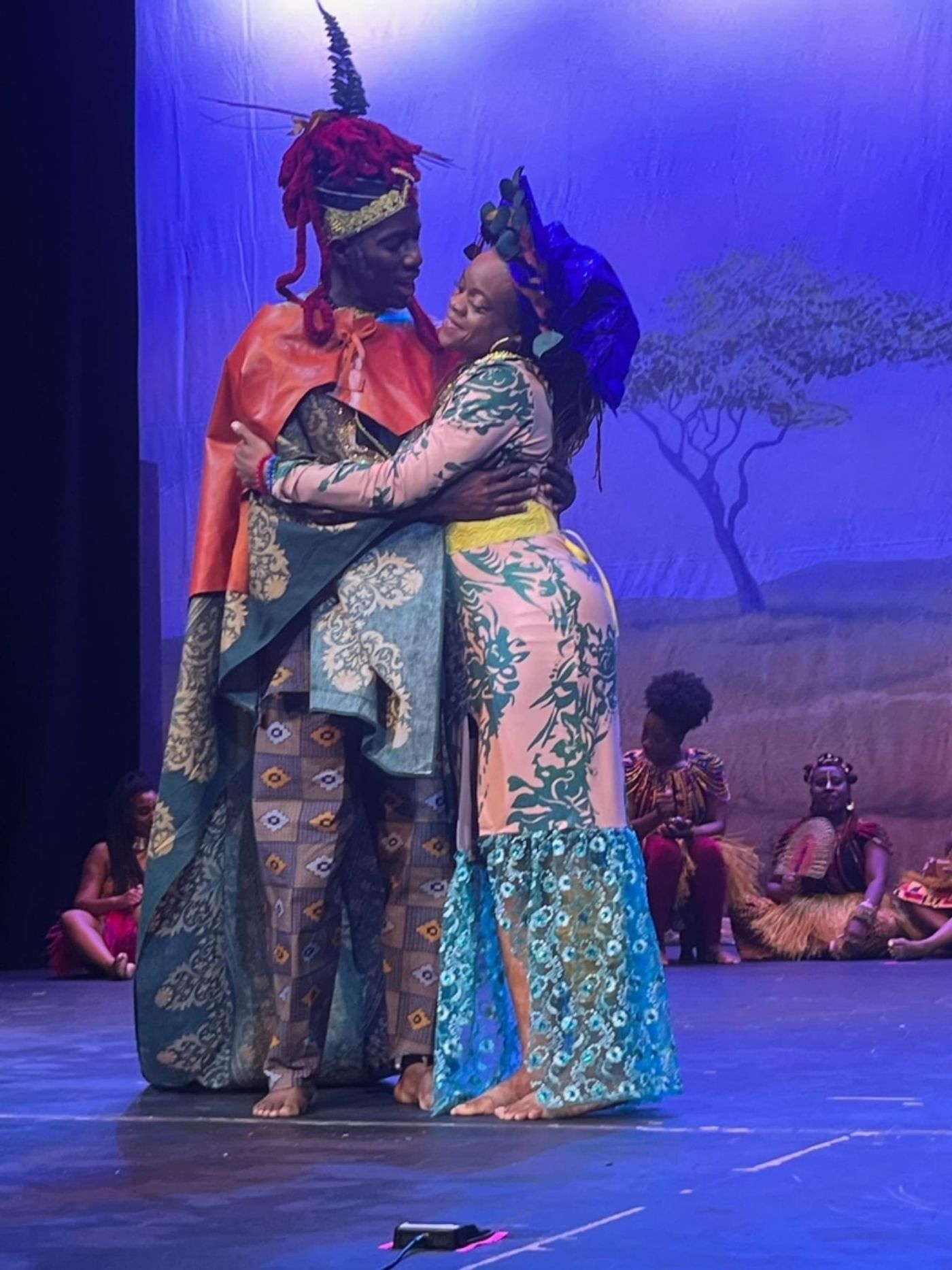
Toi Aquila R. J. (Akuba)

Playwright, Rory D. Sheriff
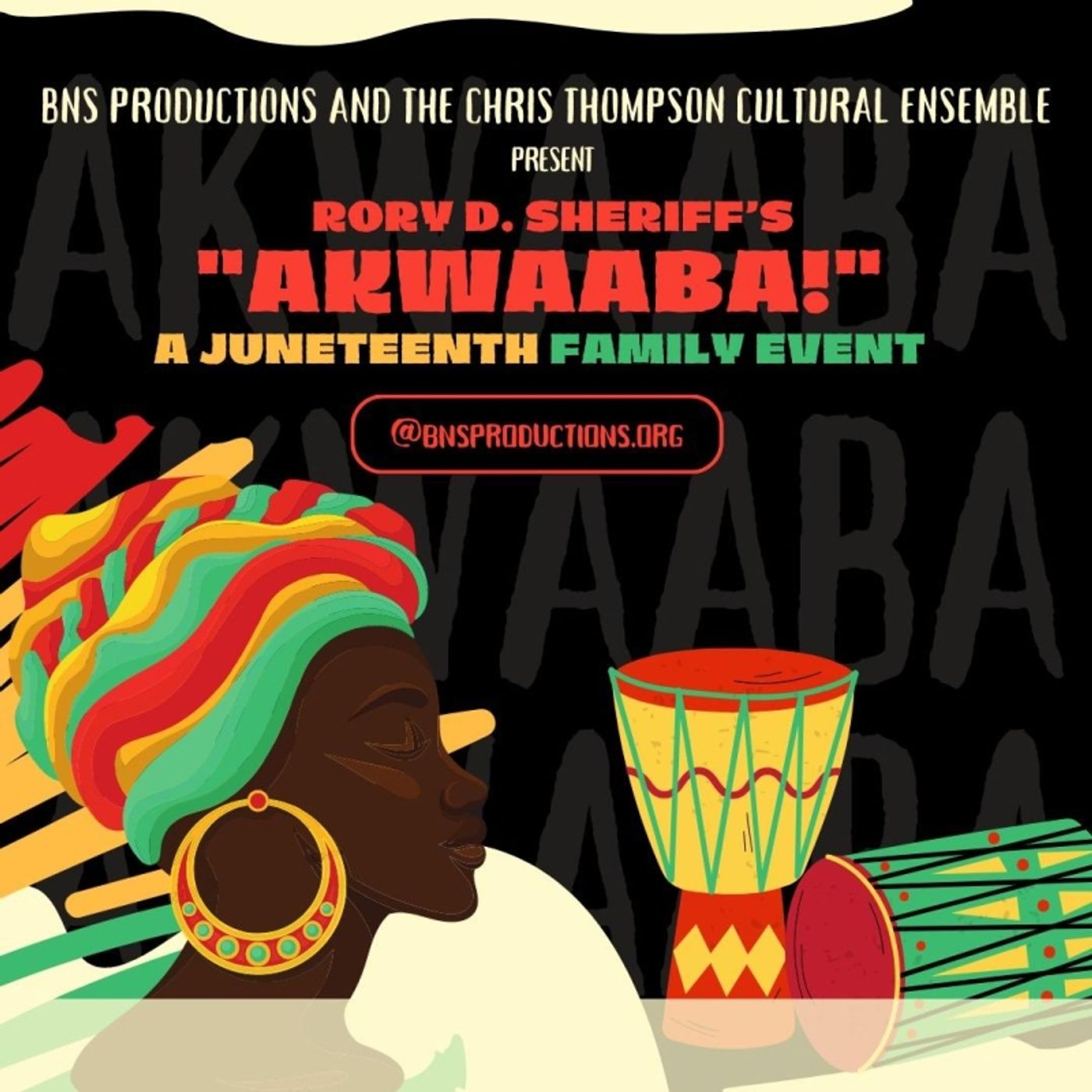
For More Information On BNS Productions And Further Performances Visit Website: https://www.bnsproductions.org/
Reader Reviews

Videos

